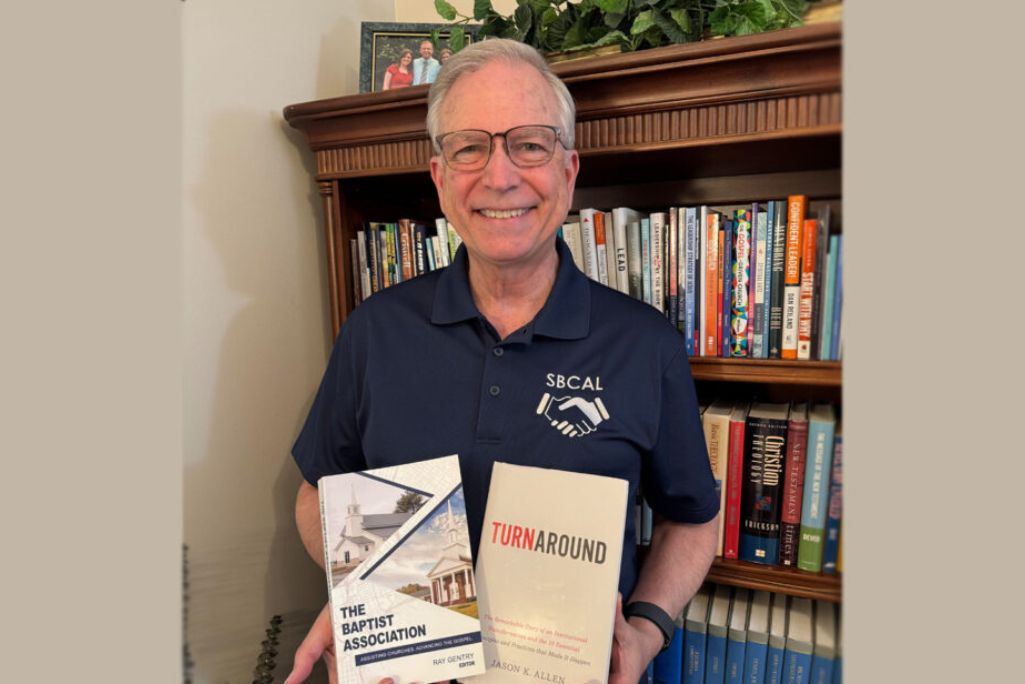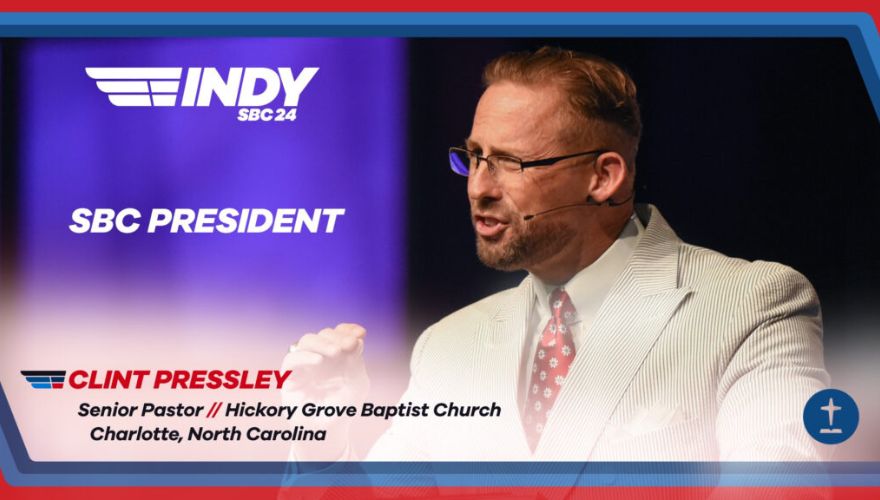
Ray Gentry, president and CEO of the SBCAL, holds his book, "The Baptist Association," and MBTS Jason K. Allen's "Turnaround" as examples of those studied in SBCAL cohorts.
NASHVILLE (BP) — In his 15 years of associational ministry, Terry Stockman has learned the benefits of listening.
“Build relationships,” he said of his advice to pastors, particularly younger ones, while leading South Fork Baptist Association in Lincolnton, N.C. “Spend the first two or three years drinking a lot of bad coffee and sitting on a front porch, listening to others and getting to know them. As they begin to trust you, you’ll be able to lead.”
The advice can translate to fellow associational leaders Stockman will meet with every month in a cohort of the Southern Baptist Conference of Associational Leaders (SBCAL) this fall. Although he will probably be the oldest member of the group, he doesn’t dismiss his own capability to grow.
“Sometimes it can be a challenge for guys like me to change, to innovate. We need others around to help us do that,” he said.
Ray Gentry has been leading the SBCAL for 10 years, the last two as full-time president and CEO. The SBCAL also marked its 65th anniversary last month at the group’s gathering that coincides with the Southern Baptist Convention (SBC) annual meeting.
During 2023-24, 54 associational leaders took part in eight cohorts of five to eight associational mission strategists, said Gentry. That number jumped last year to more than 80 leaders in 13 groups. Signups are currently taking place for the cohort year that begins in September and runs through May, with a registration deadline of Aug. 21.
Meetings occur over Zoom, with participants logging in from Virginia to Oregon and all parts between. Cohorts meet monthly, for an hour, at the same time.
Gatherings center around a book study about institutional leadership and have included SBC Executive Committee President Jeff Iorg’s “Leading Major Change in Your Ministry” and Midwestern Baptist Theological Seminary (MBTS) President Jason Allen’s “Turnaround.” Discussions often delve into subjects common to associational leaders and their ministries.
“It’s a combination of prayer support, iron sharpening iron, encouragement and practical help from one to another,” Gentry said. “We have good reports, especially from newer guys who have been leading an association for less than five years, who I would say make up most of the cohort.
“They’re hungry for (the feedback). Most of them are coming out of the pastorate, and leading an association isn’t the same. It’s very helpful for them to interact with other guys who have more experience, but they also learn from each other.”
Many are learning how to resource churches for diaspora missions, when ethnic growth becomes more pronounced in an association. It has become a popular topic, and veteran associational leaders Mark Snowden of the Cincinnati Area Baptist Association and Brett Boesch, connections strategist for the Nashville Baptist Association, will lead separate cohorts. Snowden’s group will consist of more seasoned leaders, while Boesch’s will feature younger ones.
“This will be our first time to do that,” said Gentry. “We’re doubling our efforts to address this area.”
Most cohort leaders facilitate only one group, though some lead more. Stockman, in leading his cohort, enjoys the iron-sharpening-iron aspect.
“When we discuss the book or matters we’re going through, it generates conversations and good questions,” he said. “It’s taught us how we can benefit from each other.”
Although some ministry dynamics have changed, the core responsibilities of associational missions haven’t, he added. The job is still to serve as a resource for pastors and churches. Help them minister in their context and walk alongside them however you can, but know that they have the final decision.
“God gifts people in different ways,” said Stockman. “That’s true in churches and in associational life. Those gifts are for doing ministry in a way that matches our mission and purpose. We want to see the churches and pastors we serve flourish.”
(EDITOR’S NOTE — Scott Barkley is chief national correspondent for Baptist Press.)


